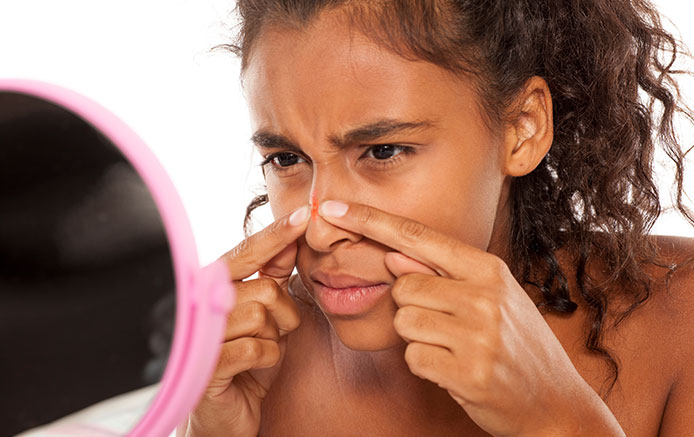
SERVICES
Acne Vulgaris
What is acne vulgaris?
Acne vulgaris is a common skin condition that occurs when hair follicles are blocked due to dead skin cells, bacteria and oil (sebum). The blocked follicles cause blemishes on the skin, including pimples, blackheads, whiteheads, and cysts. Acne vulgaris, also called acne, is commonly caused by hormones, especially around puberty.
Those old familiar tales of acne vulgaris caused by greasy chips, chocolate, or dirty skin, are false. Instead, the oil glands at the tip of the hair follicles in the skin become overactive, generally due to hormonal changes. The pores then become clogged, and inflammation then ensues. This is most common in teenagers but may occur at any age. Some women may also experience acne outbreaks just before their period.
Symptoms of acne vulgaris include:
- Blackheads which are open plugged pores
- Whiteheads which are closed plugged pores
- Papules (tender red bumps)
- Pustules that contain pus
- Painful lumps beneath the skin called nodules and cystic lesions
These outbreaks occur in the face and occur on the back, shoulders, neck, and chest. The severity of acne vulgaris ranges from mild comedonal acne to severe nodulocystic acne. Comedonal acne involves the occurrence of blackheads and whiteheads rather than pimples. Nodulocystic acne involves the occurrence of multiple inflamed and uninflamed nodules and scars.
How is Acne Vulgaris treated?
The main goal for acne vulgaris treatment is to treat and prevent acne and prevent scarring as well. As a dermatologist, Dr Limba may recommend the following:
Benzoyl peroxide
This is an antibacterial agent which is available in gels, cleansers, and spot treatments. It helps clean unclog pores, kill bacteria under the skin and treat inflammatory acne.
Topical retinoid
This is the most critical and common acne medication used to prevent all kinds of acne lesions.
Oral isotretinoin
This is commonly prescribed for more severe nodules and cysts, scarring acne, and acne that does not respond to conventional treatments.
Birth control pills
Birth control pills help manage acne by regulating hormones in women.
Chemical peels
This is a treatment that uses special chemicals to remove the top layer of old skin.
Acne Vulgaris FAQ:
Can acne vulgaris be prevented?
Preventing acne may be difficult, especially during regular hormonal changes. However, certain things may help prevent acne, such as washing your face with warm water, using a mild facial, and routinely using a moisturiser.
Should one stop wearing makeup if they have acne?
You do not have to stop wearing makeup altogether. However, if you notice breakouts, take a break from applying makeup.
Is acne common during pregnancy?
Yes, acne is common during pregnancy. Pregnancy acne is natural and typically goes away when the hormone levels return to their normal state.

